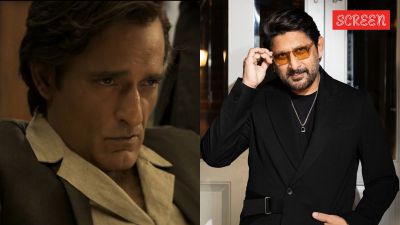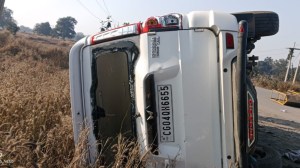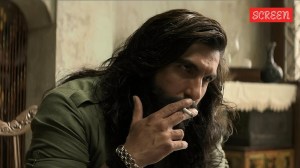Hail the Chief Censor
The country, it seems, could not be in safer hands. Our defence chiefs are busy securing not just our seas, our skies and our borders, but t...

The country, it seems, could not be in safer hands. Our defence chiefs are busy securing not just our seas, our skies and our borders, but the very boundaries of our mind, the very peripheries of our aesthetic imagination, the very limits of our cinematic experience. Rare indeed is such evidence of collective resolve. It is as if these three men had 8212; to borrow some of Churchill8217;s verbal efflorescence 8212; collectively decided to fight 8217;em on the beaches, fight 8217;em on the landing grounds, fight 8217;em on the fields and on the streets8230; fight 8217;em in film studios and on television screens.
In what was possibly the most significant meeting of strategic minds since Operation Parakram, they gathered at the VVIP auditorium of the Films Division in the Capital on Tuesday in full battle regalia. That it required the services of three of the most senior officers of the Indian Armed Forces 8212; Air Chief S.P. Tyagi, Army Chief J.J. Singh and Naval Chief Arun Prakash, along with the Union Defence Minister Pranab Mukherjee himself 8212; to clear a Bollywood movie, may appear absurd to some. But in India things work differently.
Here, where we get the right to burn a book, or stone a film hall, along with our right to vote; where our politicians mutate instantly into historians and ban books for a few more votes, and policewomen turn into disapproving nannies armed with lathis, the idea of our three defence chiefs turning into film reviewers to decide whether the rest of us can handle Rakeysh Omprakash Mehra8217;s cinematic excesses in Rang De Basanti should not surprise, really.
The System has decided in its Infinite Wisdom to infantilise the citizen. It presumes that he/she is congenitally incapable of exercising independent judgement, or distinguishing between fact and fantasy. Of course, everybody has read about air force pilots being killed in freak incidents; of course, everybody has seen kilometres of TV footage on such crashes, but if 8212; God forbid 8212; a film dwells on the theme, the instant assumption is that a whole generation will refuse to join the air force. If the reality is so fraught, how can the fantasy be allowed to fly?
Hollywood, incidentally, has had some famous run-ins with authority as well. The film, Coming Home, which had as its protagonist a paralysed veteran bitter over how the war had destroyed him personally, came some years after the US defeat in Vietnam. Yet, how it rankled! The Marine Corps pronounced that the film 8220;reflected unfavourably8221; on its image. Yet the US administration could not ban it, nor indeed the more powerful critiques of the war 8212; like Apocalypse Now, or The Deer Hunter 8212; that followed shortly after. It has also on occasion taken potshots at the commander-in-chief. Wag the Dog 8212; which has a US president calling for a fake war in order to buttress his popularity ratings before a crucial election, and which appeared to be a shadow-play of the scandal-scarred Clinton presidency 8212; could not be swotted out of existence.
Rang De Basanti has escaped with a few snips from the collective attentions of the Indian Armed Forces. One senior air force officer even commented 8212; after it was announced that the show could go on 8212; 8220;We live in a democracy, after all.8221; Great. Thank you, Sir. So why all the fuss in the first place?
- 01
- 02
- 03
- 04
- 05































